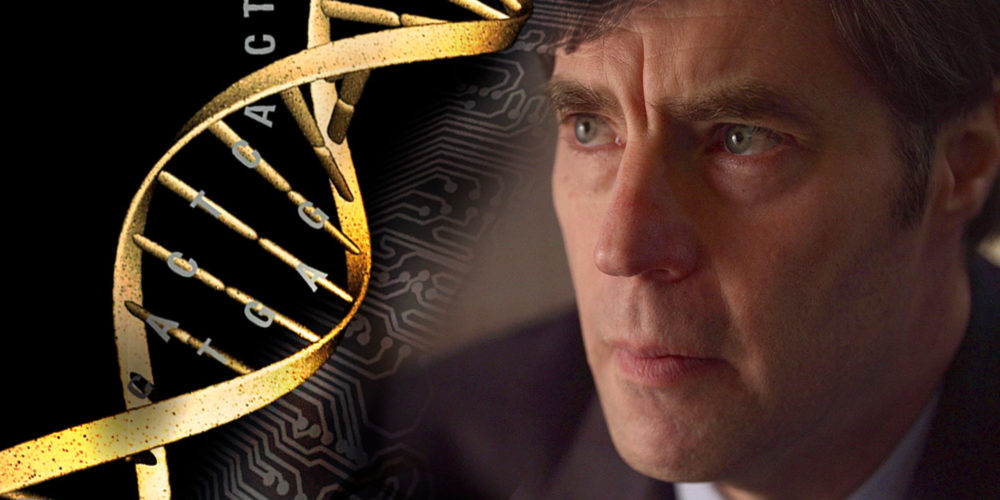Scientific Evidence for Intelligent Design
In 42 short video lectures, Meyer explores the scientific basis for the theory of intelligent design — the idea that key features of life and the universe are best explained as the product of an intelligent cause rather than an unguided process. In this course, Meyer will guide you through the major concepts and information presented in his pathbreaking books Signature in the Cell and Darwin’s Doubt, as well as previewing some of the material about physics and cosmology in his book The Return of the God Hypothesis. Each video lecture is accompanied by a short quiz, and a special digital certificate of completion is offered for those who finish the course.
Important Information: You will have 365 days from enrolling in the course to complete it. After 365 days, your course access will expire. Also, if you have trouble in creating a new user account, please turn off your ad or pop-up blockers. Sometimes those features interfere with the registration process.
Course Modules
Unit 1: Evidence of Intelligent Design in the Origin of Life
- Course OutlineFREE PREVIEW
- Lecture 1: Introduction to CourseFREE PREVIEW
- Quiz1FREE PREVIEW
- Lecture 2: Darwin’s Challenge to Intelligent Design
- Lecture 3: Theories of the Origin of Life in the Nineteenth Century
- Lecture 4: Oparin’s Theory of the Origin of Life
- Lecture 5: The Amazing Complexity of Proteins
- Lecture 6: The Role of DNA
- Lecture 7: The DNA Enigma
- Lecture 8: What Kind of Information Does DNA Contain?
- Lecture 9: Explanations for the Origin of Life — Chance
- Lecture 10: Explanations for the Origin of Life — Self-Organization
- Lecture 11: Explanations for the Origin of Life — Pre-Biotic Natural Selection
- Lecture 12: Introduction to Intelligent Design
- Lecture 13: Objections to Intelligent Design — Is Intelligent Design Science?
- Lecture 14: Objections to Intelligent Design — Argument from Ignorance?
- Lecture 15: Objections to Intelligent Design — RNA World, pt. 1
- Lecture 16: Objections to Intelligent Design — RNA World, pt. 2
- Lecture 17: Objections to Intelligent Design — RNA World, pt. 3
- Lecture 18: Objections to Intelligent Design — Junk DNA
Unit 2: Evidence of Intelligent Design in the Development of Life
- Lecture 19: Another Information Problem in the History of Life
- Lecture 20: The Cambrian Explosion
- Lecture 21: The Mystery of the Missing Fossils — The Burgess Shale
- Lecture 22: The Mystery of the Missing Fossils — The Chenjiang Fauna
- Lecture 23: What Does It Take to Build an Animal?
- Lecture 24: Challenges — Combinatorial Searches, pt. 1
- Lecture 25: Challenges — Combinatorial Searches, pt. 2
- Lecture 26: Challenges — Developmental Mutations and Gene Regulatory Networks
- Lecture 27: Challenges — Information beyond DNA
- Lecture 28: The Positive Case for Intelligent Design, pt. 1
- Lecture 29: The Positive Case for Intelligent Design, pt. 2
- Lecture 30: The Positive Case for Intelligent Design, pt. 3
- Lecture 31: Responding to Critics — Charles Marshall
- Lecture 32: Responding to Critics — Dennis Venema and Deborah Haarsma
- Lecture 33: Responding to Critics — Lawrence Krauss and Richard Dawkins
- Lecture 34: Who Is the Designer?
Unit 3: Evidence of Intelligent Design in Physics and Cosmology
- Lecture 35: One Man’s Journey
- Lecture 36: What Is Fine-Tuning?
- Lecture 37: How Do We Recognize Design?
- Lecture 38: Weak Anthropic Principle and Natural Law
- Lecture 39: The Multiverse, pt. 1
- Lecture 40: The Multiverse, pt. 2
- Lecture 41: The Multiverse, pt. 3
- Lecture 42: Who Is the Designer — Final Thoughts
